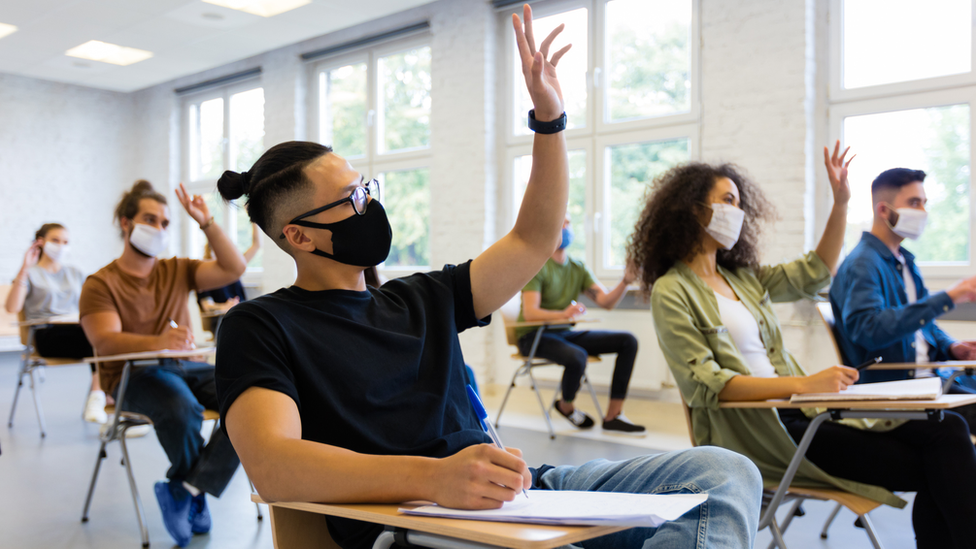Elections 2022: Black and Asian people urged to vote
- Published
Figures show one in four eligible black and Asian people are not registered to vote in the UK
Community organisers are encouraging more young black and Asian people to vote in May's elections.
Citizens Cymru Wales said a lack of representation and trust has led to lower voter registration rates.
"A lot of young people are still quite disenfranchised from local politics and don't really know or have a say in decisions that affect them," said Nirushan Sudarsan, of the group.
Since February the group has increased efforts to get people registered.
Mr Sudarsan said councils played a "huge role" in many areas, including education, social care, health and housing.
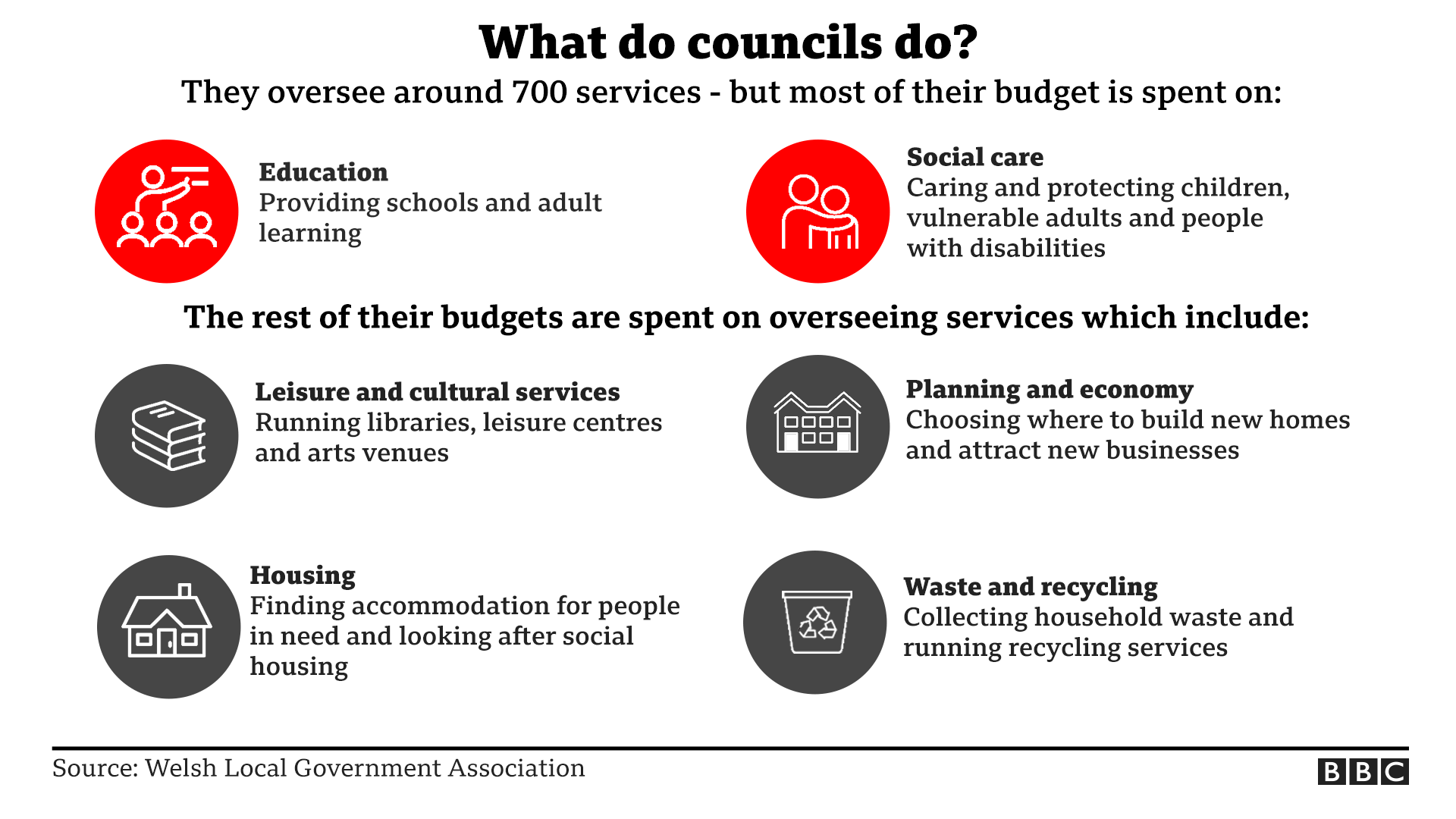
"It's really important that any decisions that people in power make, that young people's voices are at the forefront of that and that they they do feel that their voices and the votes are valuable in shaping and influencing them," added Mr Sudarsan.
In 2019, the Electoral Commission said, external one in four eligible black and Asian people were not registered to vote in the UK, with the figure rising to almost a third among eligible people of mixed heritage.
In 2020 the voting age in Wales was lowered, enabling 16 and 17-year-olds to vote for the first time in the 2021 Senedd elections.
But figures compiled by the BBC previously showed that in 2021, at least 35,000 of the 60,000 young people who were eligible to vote in Wales did not register in time.
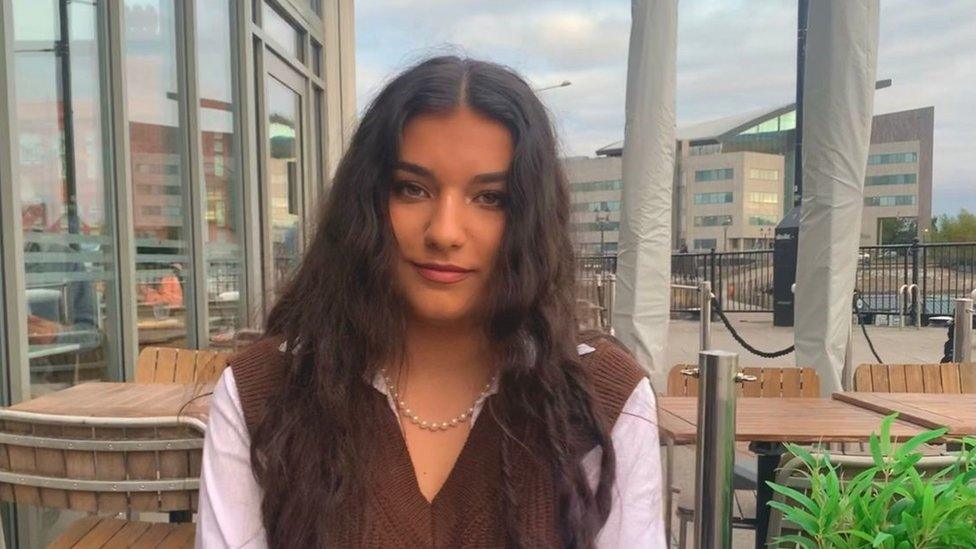
Susana is studying to become a teacher and says more needs to be taught in schools about the roles councils play
Citizens Cymru Wales describes itself as an alliance of organisations, working towards social justice.
In the run up to the May elections this year, members have been holding workshops encouraging more people from black and Asian communities to vote.
'Constantly let down'
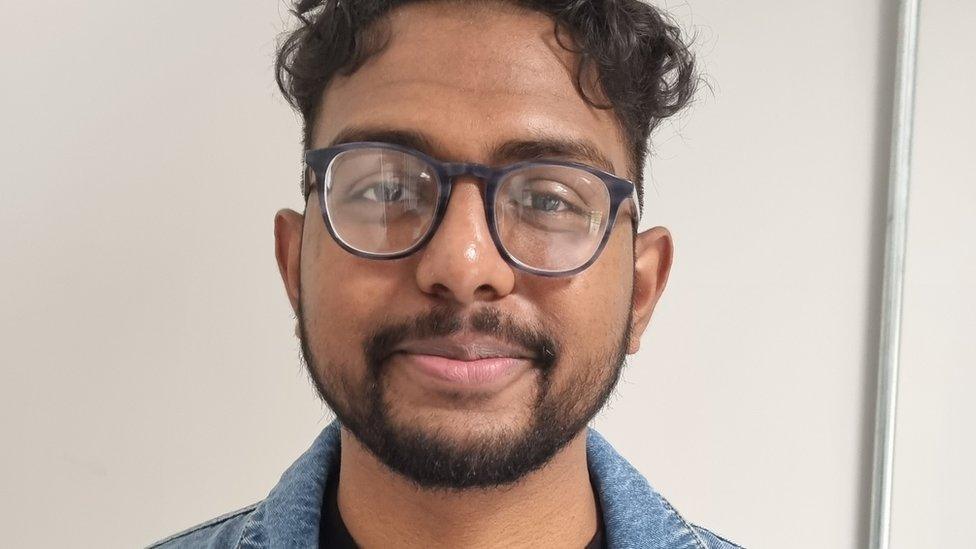
Nirushan Sudarsan wants to drive up voter registration levels among diverse communities
Mr Sudarsan, a 22-year-old politics student from Cardiff, has focused on community work in Grangetown, Butetown and the Riverside areas of the city.
He said: "It's a lack of trust and being let down by the people in power and the political parties.
"They see communities around them being affected negatively and they feel that things are not changing and that sometimes disempowers you from voting and making a change.
"Being constantly let down hinders them from seeing voting as making a difference."
He said representation was an ongoing issue.
"The lack of role models and networks that they see within political parties and within public life also is a barrier - if you don't see yourself or someone like you who are in positions of power, you're less likely to see a change that you want to see," he said.
Part of the group's work has included holding talks at community centres, as well as in schools and colleges.
Mr Sudarsan said many young people he had spoken to cared about issues such as education, climate change, tackling racial inequality.
'Big words and jargon'
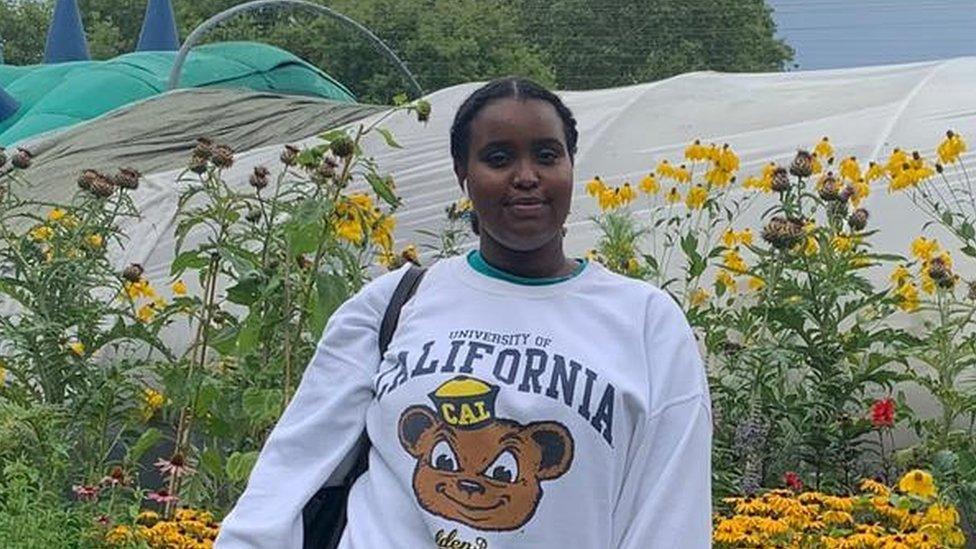
Nadila is studying politics and says there is too much jargon in politics, which turns off young people
The drive has also included a social media campaign showing young black and Asian people encouraging their peers to vote.
Politics student Nadila Hussein from Fairwater, Cardiff, has featured in one of the videos.
"Elections and politics in general are poorly communicated to young people and it's consistently just a lot of old people using really big words and jargon without breaking it down or simplifying it for those young enough to understand," she said.
"I think that's only complicated more with local elections, because most people don't know what a councillor is.
"There's that lack of basic education within society, in schools or at home where children are taught the importance of a local election or what a councillor is."
This view is shared by fellow organiser Susana Dodoc, 22, who is training to become a primary school teacher.
"Just make it simple because that's why it should be and that's how you get into young people's heads, just use minimal words and make it as simple for us to understand," said Ms Dodoc.
"If they come in [to schools] and educate us properly on why it is important, children and young people will have a different view on why voting is actually really, really important."

Although she does not want to go into politics she wanted to embed political awareness in her work.
"Obviously I understand the curriculum is such a big thing but just embedding politics into the curriculum would be so important," she said.
"If I can do that within my own practice and put it all together that would be a beautiful outcome, where I can educate young children on the topic within my full-time job."
'Politicians don't mention us'
The hurdles of getting younger people engaged in politics is also a concern for the Welsh Youth Parliament.
Welsh Youth Parliament member Hanna Mahamed was elected to the role in December.
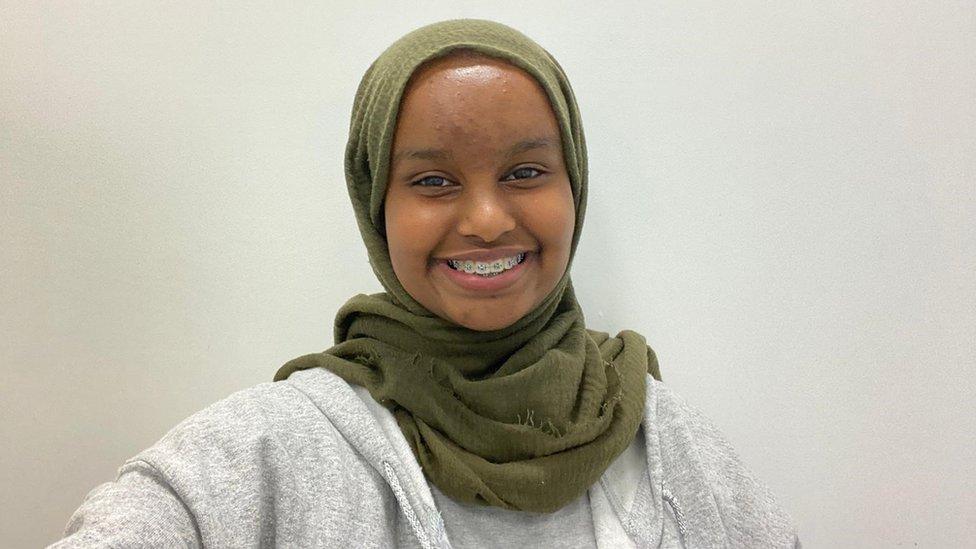
Hanna a member of the Welsh Youth Parliament is also campaigning to encourage over-16s to vote
She said: "A lot of my friends see a divide between us and them: the older generation of politicians who don't mention anything that directly affects us.
"A lot of my friends don't want to watch the news as they say it doesn't directly affect them, so we are trying to bridge that gap."
Ibby Osman, from Cardiff, is studying social policy and has worked with Citizens Cymru Wales from the age of 16.
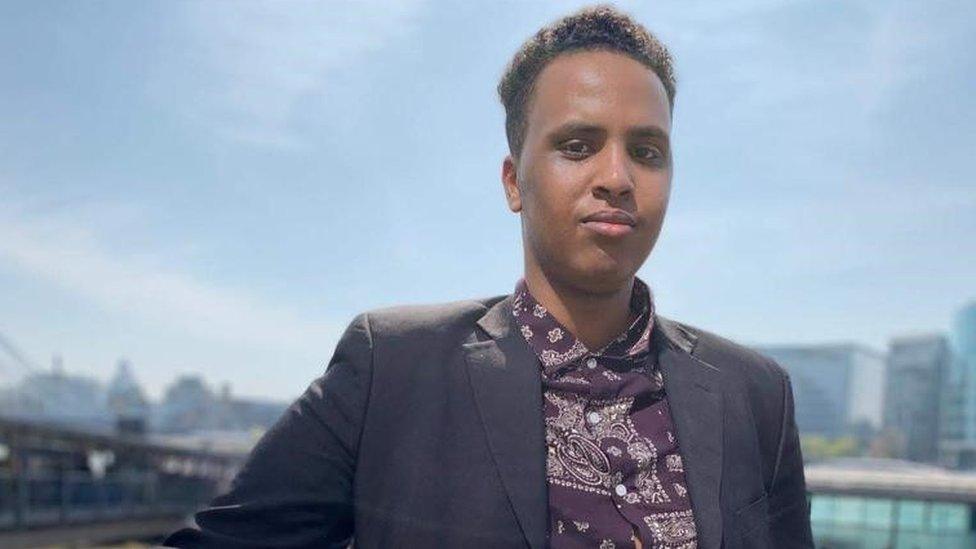
Ibby has already been working with health boards and authorities in raising issues that affect young people
He said: "As a young black man growing up in such a populated society, full of white, upper class males representing myself and other young people in politics, it can be quite disheartening when our views are not heard, or issues that are massively impacting us aren't really addressed.
"That's one of my key interests and that's what's really driven me to be more active, more involved and more engaged in this."
He said he was working with health boards and politicians to highlight issues that young people had raised with him such as mental health, employment and educational opportunities.
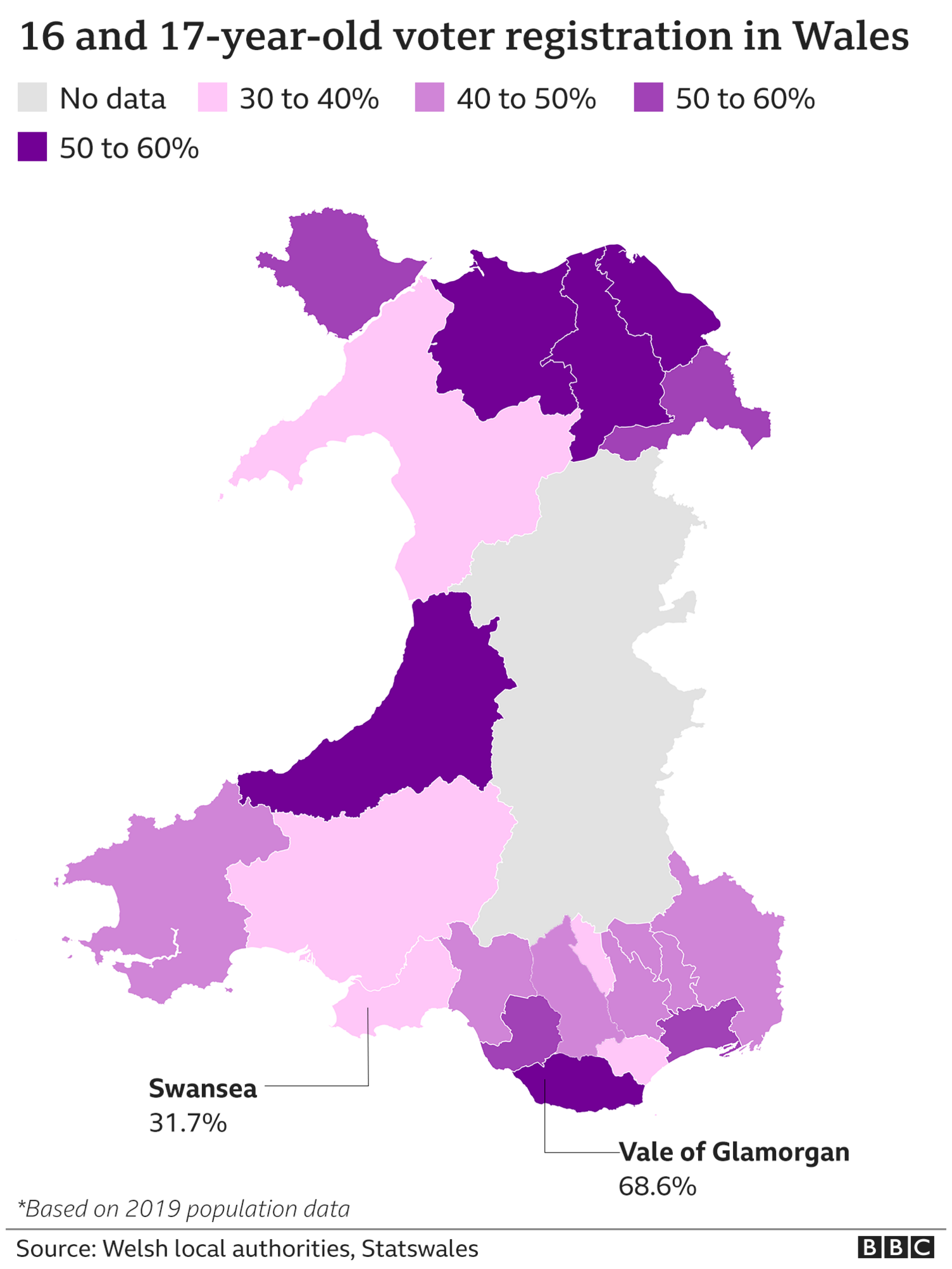
Statistics from the 2021 elections in Wales showed that in some parts of Wales only one in three young people had registered to vote
He added: "For a lot of young people, but adults as well, they fail to recognize that these issues are more devolved and are local issues rather than rather than UK government wide issues.
"If they had better engagement and I think politicians were more direct and and more understood, then they can be a partnership and have more collaborative working to really solve the problems."
Long-term, he has not ruled out a career in politics but said more change was needed in terms of representation.
"It would be seen as something that's really tokenistic, that I'm just there because I'm a tick on a stats form for local council and local government," he reflected.
'Cautiously optimistic'
Mr Sudarsan said he felt "cautiously optimistic" the group's work would be effective.
He added: "We're not going to drastically change the turnout come 6 May because it takes a lot of groundwork and real dedication to get to a level where turnout is really good.
"What we hope to do is build those relationships with people and do our part in driving and getting young people registered to vote."
Eligible voters need to register before midnight on 14 April in order to be able to vote in the May elections.
Related topics
- Published25 March 2022
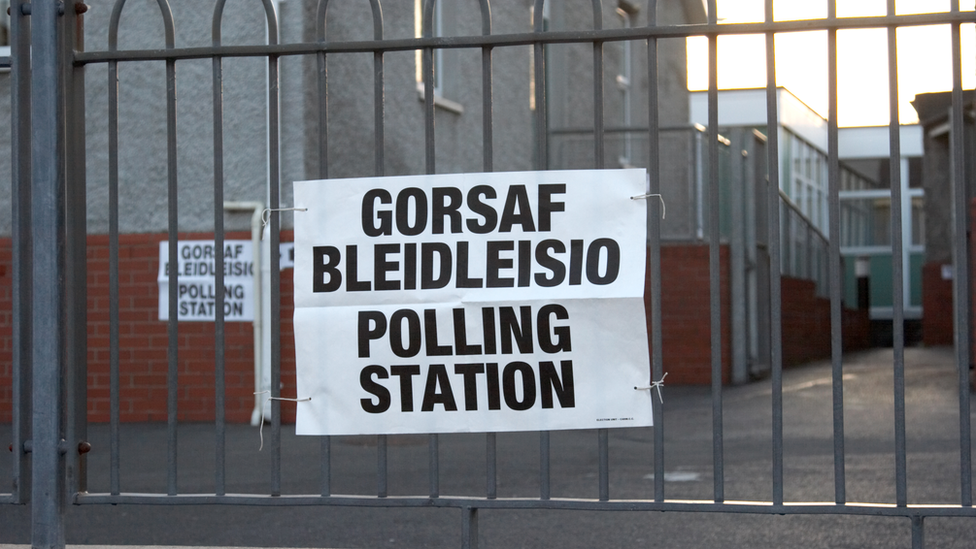
- Published5 May 2021
